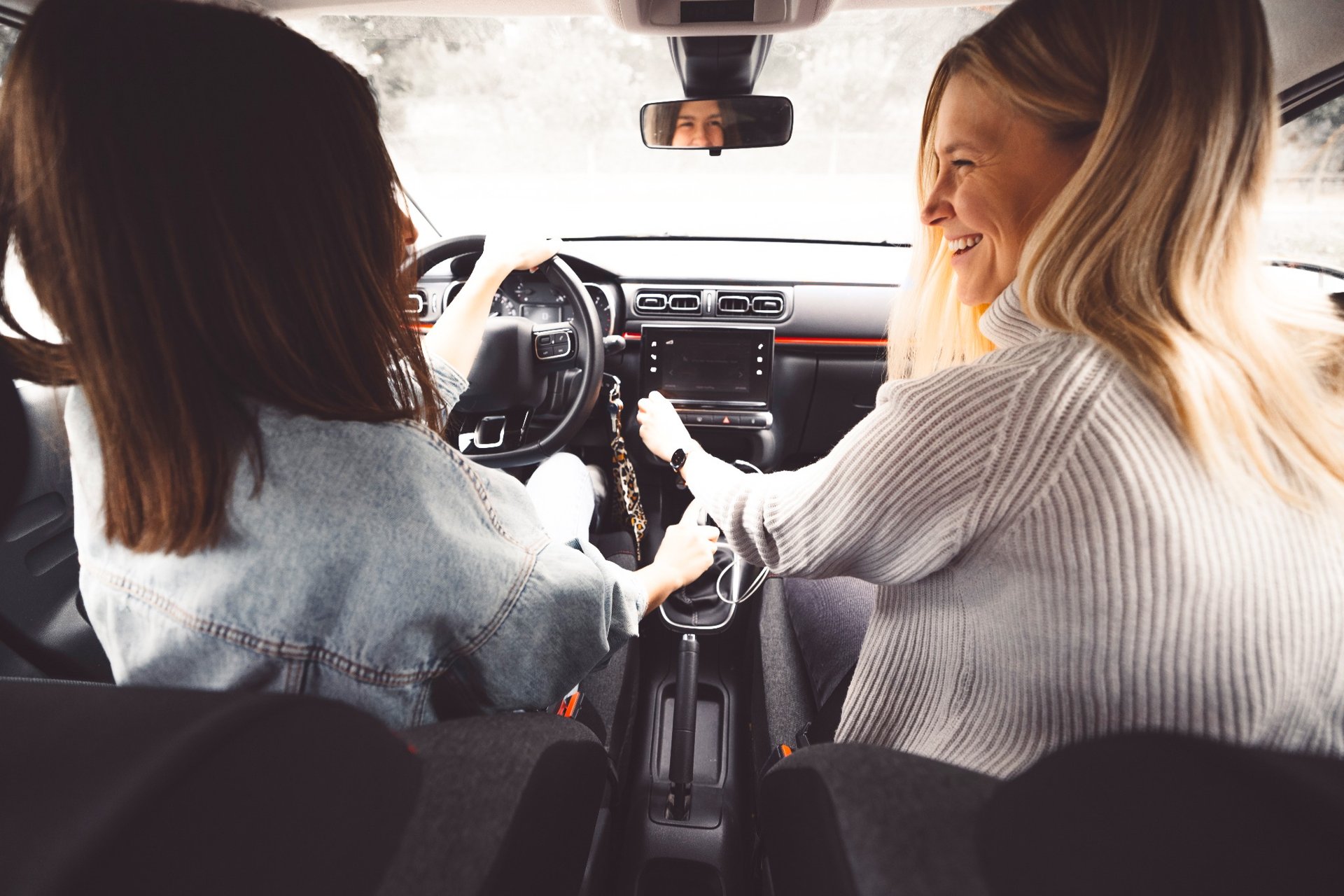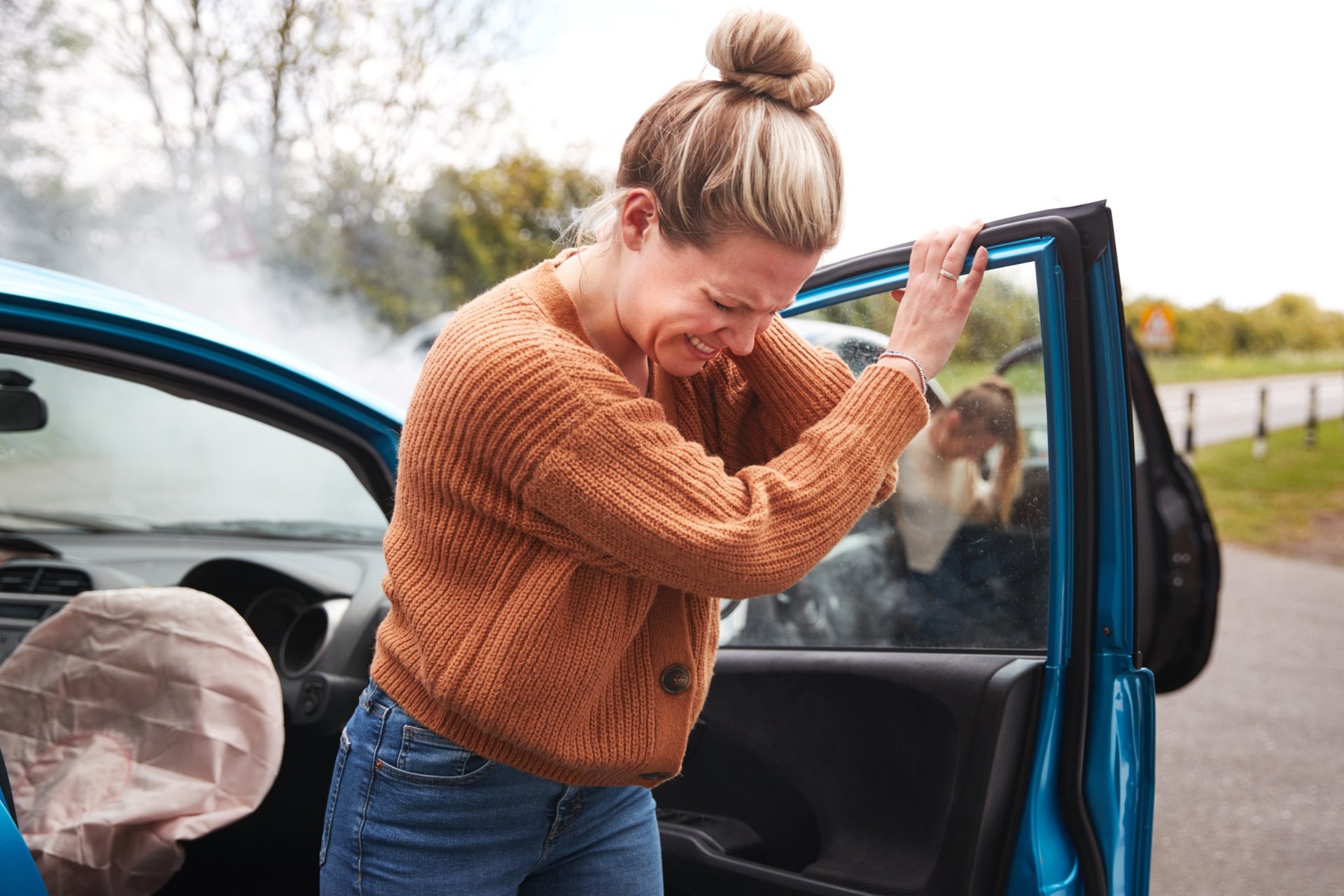lmccullough@hawklawgroup.com | July 25, 2024 | Car Accidents
Letting a friend or family member borrow your car seems like a simple favor, but what happens if someone else drives your car and has an accident? In Georgia, this scenario creates a complex web of auto insurance coverage and legal liability that many vehicle owners don’t fully understand until it’s too late.
Georgia operates under an at-fault insurance system, meaning the party responsible for causing a car accident is liable for damages. However, when someone else is driving your vehicle and they get into an accident, determining who pays and what coverage applies becomes significantly more complicated. Getting to know these rules can save you thousands of dollars and protect you from unexpected legal consequences when you loan your car to another driver.
This guide will clarify how Georgia’s car insurance laws work, who bears responsibility when your vehicle is involved in an accident, and what steps you should take to protect yourself.
If you have questions about liability or insurance coverage after someone else crashed your vehicle, don’t wait. Speak with our experienced Augusta Car Accident Lawyer today to understand your rights and take the right next steps.
Understanding Georgia’s At-Fault Insurance Laws
Georgia follows a modified comparative negligence system under O.C.G.A. § 51-12-33, which determines how fault and damages are assigned after a motor vehicle accident. This means that if you’re less than 50% at fault for an accident, you can still recover compensation, but your award will be reduced by your percentage of fault.
For example, if you’re found to be 20% responsible for a motor vehicle accident with $10,000 in damages, you would receive $8,000 in compensation. However, if you’re 50% or more at-fault, you cannot recover any damages from the other party.
When someone else driving your car gets in an accident and causes harm, Georgia’s fault determination process considers both the driver’s actions and whether you, as the vehicle owner, bear any responsibility for giving permission to drive your car to that person.
Additional reading: Are you suffering from PTSD after a car crash?

Who Pays: The Driver or the Owner?
In Georgia, automobile insurance typically follows the vehicle, not the driver. This fundamental principle means that when someone else drives driving my car and gets into an accident with your permission, your auto insurance policy is the primary source of coverage for any harm they cause.
The coverage hierarchy and liability distribution depend on several critical factors that every vehicle owner should understand before they let someone borrow your car.
⚖️ In Georgia, your car’s insurance follows the vehicle, not the person. Letting someone drive your car is like co-signing their risk. If they mess up—even slightly—you could be footing the bill.
Permissive Use Scenarios
Permissive use occurs when you give someone explicit or implied permission to drive your vehicle. Georgia courts recognize both types of permission, and your auto insurance will generally provide coverage in these situations.
Explicit permission includes scenarios where you directly tell someone else to drive your vehicle, such as:
- Asking a friend to drive your car home from a restaurant
- Letting someone borrow your car for errands
- Allowing a coworker to drive your vehicle for a business trip
Implied permission can be more complex but includes situations where:
- A spouse regularly drives the friend’s car
- An adult child living at home uses the parent’s motor vehicle
- Someone has been given keys and access to drive your car on multiple occasions
When permissive use applies, the coverage hierarchy works as follows:
| Coverage Order | Policy Source | Coverage Details |
|---|---|---|
| Primary | Vehicle owner’s insurance policy | Full policy limits apply first |
| Secondary | Driver’s auto insurance | Excess coverage if owner’s limits are insufficient |
| Tertiary | Third-party claims | Against remaining liable parties |
Non-Permissive Use Cases
When someone drives your car and gets involved without your permission, the liability landscape changes dramatically. In these cases, your insurance company may deny coverage, leaving the unauthorized driver’s insurance as the primary source of compensation.
However, proving lack of permission can be challenging. Georgia courts place the burden on the vehicle owner to demonstrate that:
- No explicit permission to drive your car was given
- No implied permission existed based on past behavior
- The person driving took the vehicle without authorization
Common non-permissive use scenarios include:
- Vehicle theft or joyriding
- A friend drove your car after you’ve specifically said no
- Someone else drives your car while you’re out of town without permission
Negligent Entrustment in Georgia
Negligent entrustment represents one of the most significant liability risks for vehicle owners in Georgia. Under O.C.G.A. § 51-2-2, you can be held liable for damages if you knowingly allow an incompetent or unfit driver to drive your vehicle.
The court will consider whether you knew or should have known that the person driving your car was:
- Intoxicated or under the influence of drugs
- Driving with a suspended or revoked license
- Inexperienced or unlicensed
- Known for reckless or dangerous driving record patterns
- Physically or mentally impaired
Vehicle owners have faced significant liability when courts determine they should have known about a driver’s unfitness. These cases often involve drivers with suspended licenses, DUI histories, or known reckless driving patterns where the car accident is liable to occur.
Additional reading: do you have to call police for fender bender
If your accident involved a rideshare vehicle, speak with our Evans uber accident lawyer about your options.
What If the Other Driver Is at Fault?
When the accident happens and wasn’t the fault for the accident by the person who was driving your car, the process becomes more straightforward but still requires careful attention to detail.
Your insurance company will typically handle the third-party claim against the at-fault driver’s insurance policy. This process, called subrogation, allows your insurer to recover the money they paid out for your vehicle’s repairs and any medical expenses.
However, you may still face:
- Deductible payments until subrogation is complete
- Temporary insurance rates increases even though you weren’t at fault
- Rental car expenses if not covered by your policy

Insurance Exceptions and Policy Limits
⚠️ Your “full coverage” may not be as full as you think. Georgia’s minimums are shockingly low, and common exclusions like racing, rideshare, or excluded drivers can leave you fully exposed—even with permission.
Even with permissive use, several common exclusions can leave you vulnerable to significant out-of-pocket expenses:
Excluded drivers specifically listed on your policy will not be covered, regardless of permission. Commercial use of your personal vehicle may void coverage where insurance may not apply. Racing or intentional acts are typically excluded from all types of insurance policies.
When damages from the accident exceed your policy limits, you become personally liable for the difference. Georgia’s minimum auto insurance requirements are relatively low:
- $25,000 per person for bodily injury
- $50,000 per accident for bodily injury
- $25,000 for property damage
Consider this scenario: Your friend crashes your car and causes an accident while driving my car, resulting in $75,000 in medical bills. If you only carry minimum liability coverage, you could be personally liable for $25,000 beyond your policy limits.
If your vehicle lost value after the crash—even after repairs—you may be eligible to pursue Diminished Value Accident Claims.
Will My Rates Go Up If My Car Was Involved?
Unfortunately, your insurance rates can increase even if the person driving your car wasn’t at fault. Insurance carriers view any insurance claim against your policy as a risk factor, regardless of who was behind the wheel.
However, some insurers offer accident forgiveness programs that prevent rate increases for your first at-fault accident where the driver is at fault. These programs vary by company and may require additional premium payments.
To minimize rate impacts:
- Maintain a clean driving record
- Consider higher deductibles for lower premiums
- Shop around if your rates increase significantly after a claim
If you’re experiencing anxiety or flashbacks after a collision, you may be suffering from crash-related trauma—learn more in Are You Suffering from PTSD After a Car Crash?
Legal Steps to Take After an Accident
Taking immediate action after an accident with your car can protect your legal and financial interests:
- File a police report immediately – Georgia law requires reporting accidents involving injury, death, or property damage exceeding $500. Unsure whether to report a minor crash? Read Should You Call the Cops for a Fender Bender in Georgia?
- Contact your insurance company – Report the accident may have occurred within 24 hours, even on weekends or holidays.
- Document everything – Take photos, gather witness information, and keep detailed records of all communications.
- Avoid admitting fault – Let the insurance will cover determination and legal professionals establish liability.
- Consider our legal representation – Complex personal injury scenarios often benefit from our experienced legal guidance.
💡 Fast, smart action after the crash could save you thousands and prevent future liability. Don’t just swap info—document like a litigator. Every detail can become evidence (or defense).
For help obtaining a police crash report, see our guide on Car Accident Reports in Augusta, GA: FAQs.

How our Georgia Car Accident Lawyer Can Help
Going through car accident claims and liability issues when they’re in an accident requires specialized knowledge of Georgia’s complex legal landscape. Our experienced personal injury attorney will:
Analyze your specific situation to determine all potential sources of auto insurance coverage and liability. Gather evidence to support your personal injury case and protect your interests. Negotiate with insurance companies to ensure fair treatment and maximum compensation.
Complex liability scenarios often benefit from experienced legal guidance, particularly when multiple insurance policy covers are involved or when negligent entrustment claims arise that may cover additional damages.
At Hawk Law Group, we’ve handled numerous cases involving complex insurance coverage and liability issues. Our 71+ years of combined experience helps us identify coverage sources and legal strategies that others might miss. We have successfully represented clients and help cover their losses in cases involving:
- $3,300,000 Wrongful Death settlement
- $1,500,000 Catastrophic Injury verdict
- $1,200,000 Motor Vehicle Collision resolution
- $975,000 Wrongful Death settlement
Not sure about legal terms used in your accident case? Visit our Glossary of Personal Injury Terms for clear explanations.
Contact Our Augusta, Georgia Car Accident Attorneys Today
Don’t let confusion about insurance cover and liability leave you vulnerable to financial disaster. Whether you’re dealing with a car accident that already happened or want to understand your risks before you borrow your car to someone, our experienced car accident attorneys will provide the guidance you need.
Our firm serves clients throughout the Central Savannah River Area, including Augusta, Evans, Thomson, Waynesboro, and Aiken, SC. We’ll come to you if you can’t make it to one of our five convenient locations.
Additional reading: What happens when a truck driver has an accident?
Contact us online or call us today at (706) 914-2591 for your free consultation. We’re available 24/7 to discuss your case and explain your legal options.
Frequently Asked Questions
What happens if someone not on my insurance crashes your car?
If they had your permission to drive, depending on your car insurance will typically provide primary coverage regardless of whether they’re specifically listed on your policy. However, if they’re an excluded driver, your insurance coverage may be denied and you could be personally liable.
What happens if someone else is driving and causes an accident?
If the person driving had your permission, your auto insurance policy will typically provide primary coverage for the car accident. The driver’s insurance may provide secondary coverage if your limits are exceeded. However, if someone else is driving my car without permission, your insurance company would likely deny the claim.
What if someone drives my car without permission?
Your insurance would deny coverage for non-permissive use, leaving the unauthorized driver’s insurance as the primary source of compensation. You’ll need to prove you didn’t give permission.
Will I be sued if my friend caused a crash in my car?
Yes, you can be sued as the vehicle owner, especially if negligent entrustment is alleged. Your insurance will be the primary source for legal defense, but complex cases may require additional legal representation.
What happens if someone else causes an accident while driving?
When another driver causes an accident, their insurance should pay for property damage and medical expenses. However, if they don’t have adequate coverage, you may need to file a claim with your own insurance company or pursue a personal injury claim.
Can my friend’s insurance pay if they were at fault?
Your friend’s insurance may provide secondary coverage if your policy limits are insufficient, but whose insurance is primary typically depends on your insurance when someone drives with permission.